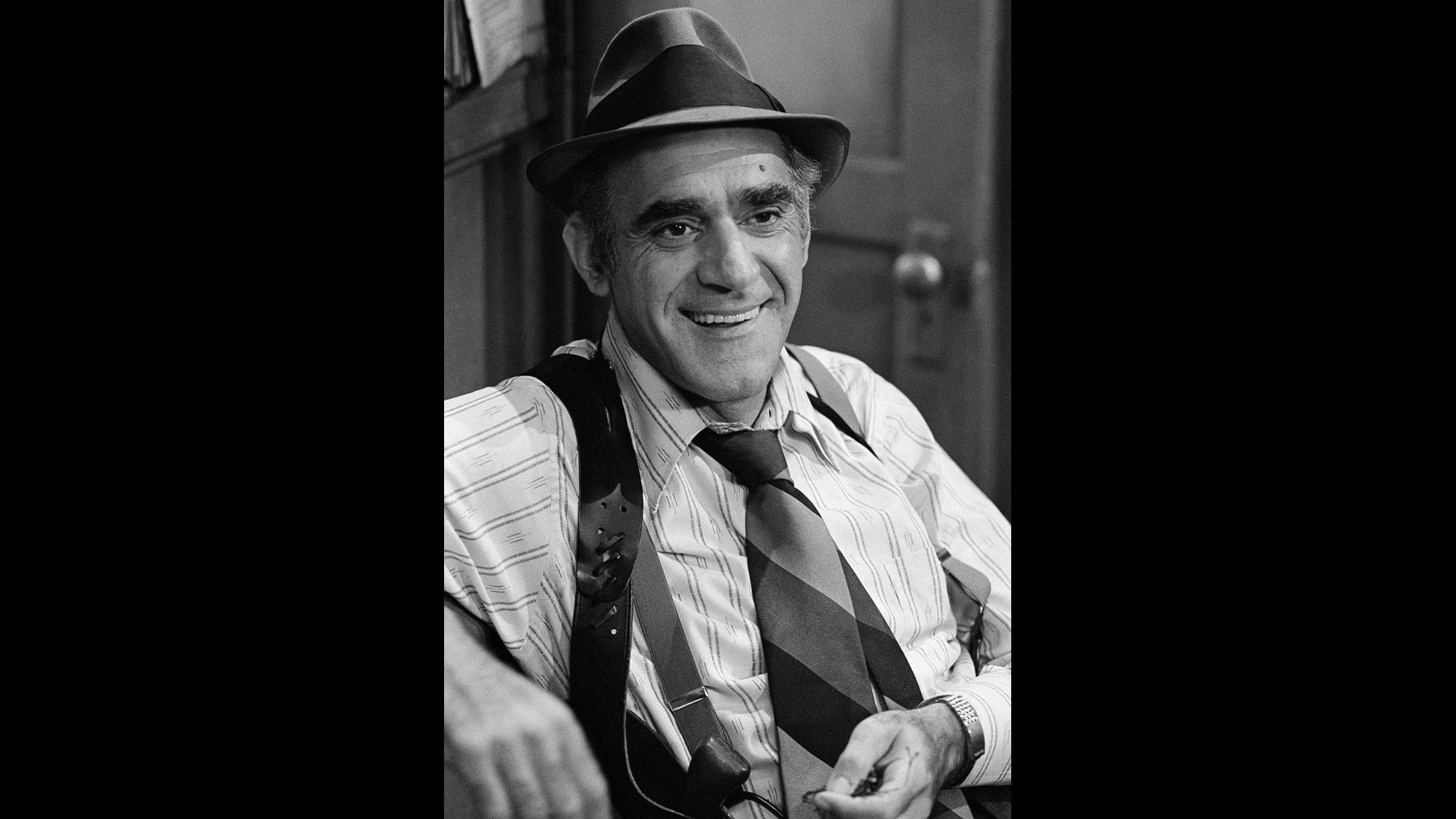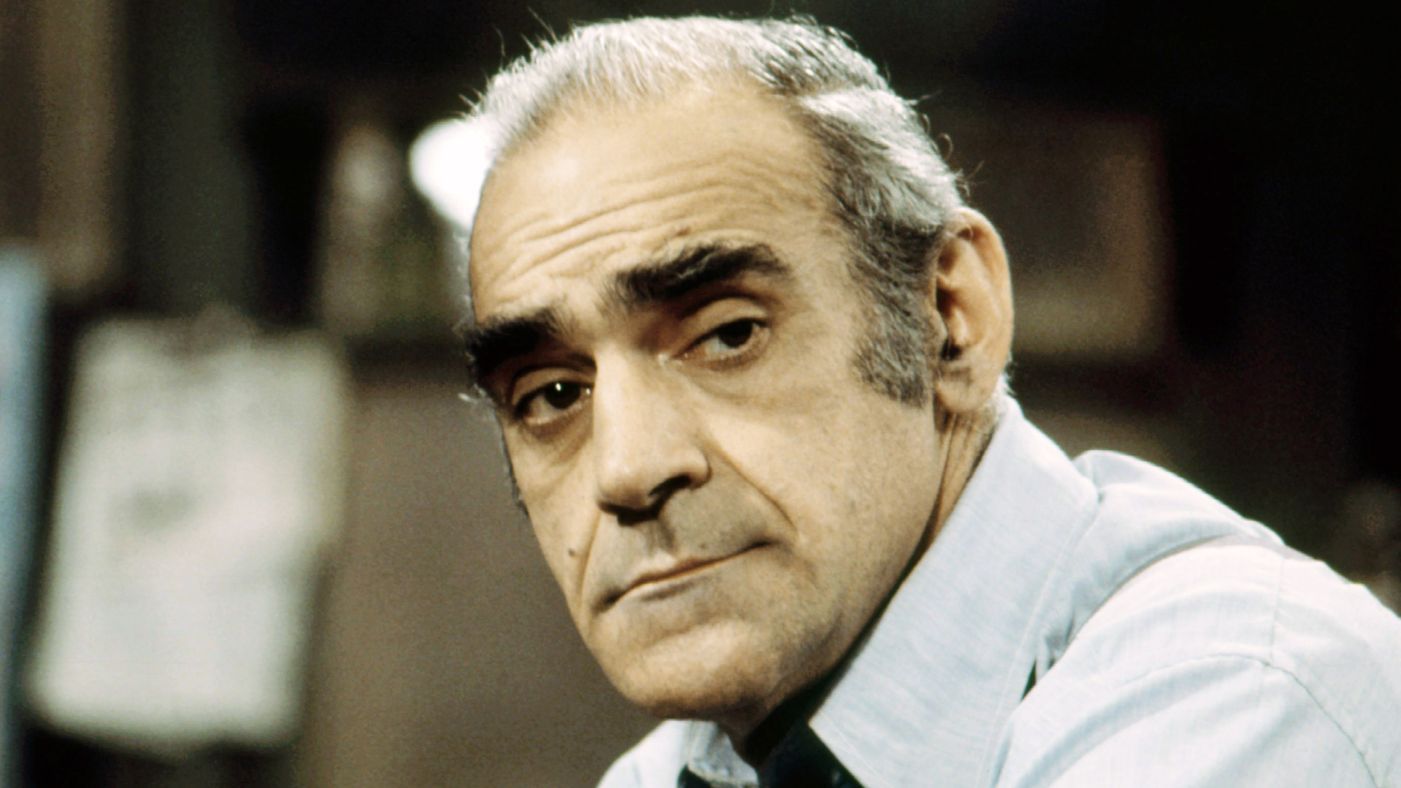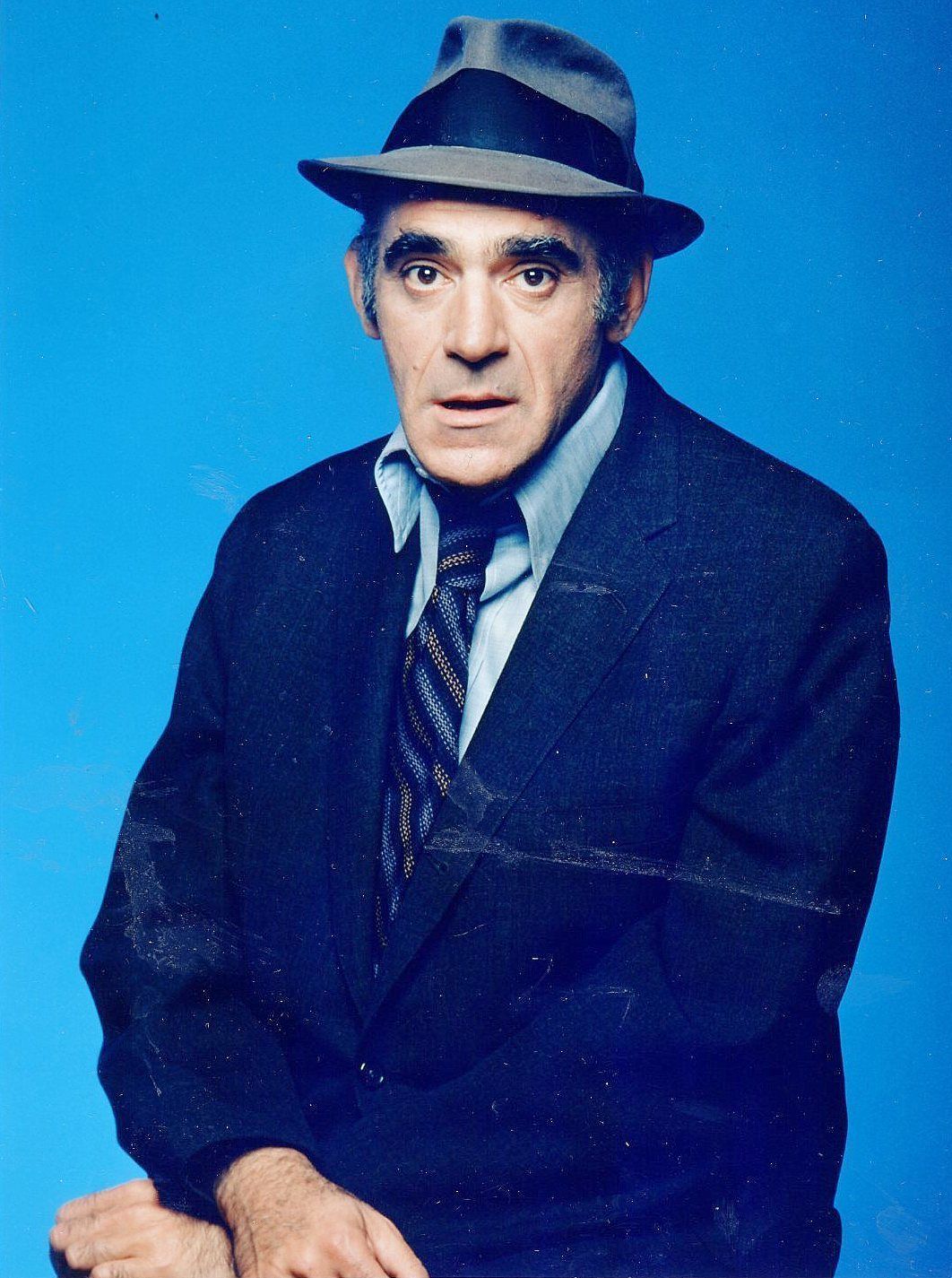Abe Vigoda: The Enduring Legacy Of A Misunderstood Star
Abe Vigoda was an American actor whose face and distinctive voice became instantly recognizable to millions, primarily through his iconic roles as the world-weary mobster Sal Tessio in Francis Ford Coppola's masterpiece "The Godfather" and the beloved, often-grumpy Detective Phil Fish in the hit television series "Barney Miller." Beyond these defining performances, Vigoda also gained an unusual form of celebrity as the subject of repeated, mistaken reports of his death, a running gag that ironically extended his public presence for decades. His career, spanning over 60 years, was a testament to his dedication, versatility, and the unique charm he brought to every character, no matter how big or small.
From his humble beginnings in Brooklyn to becoming a character actor revered for his gravitas and comedic timing, Abe Vigoda navigated the unpredictable waters of Hollywood with resilience. This article delves into the remarkable life and career of a man who became more than just an actor; he became a cultural touchstone, a symbol of longevity, and a testament to the power of a memorable performance. We will explore his early struggles, his breakthrough roles, the phenomenon of his "death hoaxes," and the lasting impact he left on both the big and small screens.
Table of Contents
- The Unforgettable Abe Vigoda: A Legacy Defined
- Early Life and Humble Beginnings
- The Road to Stardom: Early Career and Broadway
- The Godfather: A Defining Role as Sal Tessio
- Barney Miller and Fish: Television Stardom
- Beyond the Iconic Roles: Later Career and Cameos
- The Enduring Myth: Abe Vigoda's Famous Death Hoaxes
- Personal Life and Legacy
- Abe Vigoda: At a Glance
- The Man Behind the Roles: A Lasting Impact
The Unforgettable Abe Vigoda: A Legacy Defined
Abe Vigoda was not your typical Hollywood leading man. His distinctive, craggy features, often described as world-weary or melancholic, were his unique selling point in an industry obsessed with conventional good looks. This unusual appearance, combined with his undeniable talent, became his ticket to fame and fortune, allowing him to carve out a niche as one of the most recognizable and beloved character actors of his generation. For decades, the name Abe Vigoda conjured images of stoic mobsters and exasperated detectives, but also a sense of endearing resilience, largely due to the bizarre public fascination with his perceived mortality. His career trajectory is a fascinating study in perseverance. For many years, he toiled in obscurity, honing his craft on the stage before finally breaking through in his 50s. This late-blooming success only added to his legend, proving that talent and dedication can eventually triumph, regardless of age or conventional appeal. The fact that he remained active and relevant well into his 90s, even appearing in pop culture references related to his supposed demise, speaks volumes about his enduring appeal and the unique place he held in the hearts of audiences.Early Life and Humble Beginnings
Born Abraham Charles Vigoda on February 24, 1921, in Brooklyn, New York, Abe Vigoda's early life was rooted in the vibrant, working-class immigrant communities that defined the borough in the early 20th century. His upbringing instilled in him a strong work ethic and a grounded perspective that would serve him well throughout his long and often challenging career.Roots in Brooklyn
Abe Vigoda was born to Samuel and Lena Vigoda (née Moses), both Jewish immigrants who had arrived in the United States from Russia. Brooklyn, with its diverse neighborhoods and bustling streets, provided a formative environment for the young Vigoda. It was a place where resilience was learned early, and the pursuit of dreams often required grit and determination. The cultural richness of his background undoubtedly contributed to the depth and authenticity he brought to his roles later in life.A Tailor's Son
His father, Samuel Vigoda, worked as a tailor on the Lower East Side of Manhattan. This profession, demanding precision and dedication, likely instilled in Abe a sense of meticulousness and a strong work ethic. Growing up in a family that valued hard work and perseverance, Vigoda understood from a young age that success was earned, not given. These foundational values would become evident in his disciplined approach to acting and his unwavering commitment to his craft, even during periods of struggle.The Road to Stardom: Early Career and Broadway
Abe Vigoda's journey into acting began relatively early, while he was still in his 20s. He started working with the American Theatre Wing, a testament to his early commitment to the performing arts. His professional acting career officially began in 1947, marking the start of a long and often arduous path toward recognition. For many years, Vigoda was a quintessential "working actor," taking on various roles and honing his skills without widespread fame. He spent decades in regional theater and off-Broadway productions, developing the nuanced performances that would later define his iconic characters. It was on the stage that he truly gained acting notability in the late 1960s and early 1970s. His Broadway credits include significant roles in critically acclaimed productions such as *Marat/Sade* (1967), where he portrayed "Mad Animal," and *The Man in the Glass Booth* (1968), where he played Landau. These demanding theatrical roles allowed him to explore complex characters and demonstrate his dramatic range, setting the stage for his eventual breakthrough in film and television. His dedication to the craft, evident in these early struggles and triumphs, underscores the depth of his commitment before the glare of Hollywood spotlights found him.The Godfather: A Defining Role as Sal Tessio
In 1972, at the age of 51, Abe Vigoda landed the role that would forever etch his face into cinematic history: Salvatore "Sal" Tessio in Francis Ford Coppola's monumental crime epic, "The Godfather." As one of the three caporegimes under Vito Corleone, Tessio was a character steeped in loyalty, wisdom, and ultimately, betrayal. Vigoda's portrayal of Tessio was masterfully understated, conveying a quiet strength and a deep sense of commitment to the Corleone family, making his eventual treachery all the more shocking and tragic. Vigoda brought a profound sense of authenticity to the role. His weary eyes and gravelly voice perfectly embodied a man who had seen it all, who had risen through the ranks of the criminal underworld, and who believed he understood the game better than anyone. The scene where Tessio is led away to his fate, uttering the poignant line, "Tell Michael it was only business. I always liked Tom," remains one of the most memorable and heartbreaking moments in cinematic history. It was a testament to Vigoda's ability to convey complex emotions with minimal dialogue, solidifying his status as a formidable character actor. This role not only showcased his dramatic prowess but also opened the door to a new phase of his career, proving that age was no barrier to achieving iconic status in Hollywood.Barney Miller and Fish: Television Stardom
While "The Godfather" brought him cinematic immortality, it was television that made Abe Vigoda a household name. Shortly after his success as Sal Tessio, he took on another defining role that would introduce him to millions of viewers every week: Detective Phil Fish on the highly acclaimed sitcom "Barney Miller."The Beloved Detective Phil Fish
Joining the cast of "Barney Miller" in 1975, Abe Vigoda's portrayal of Detective Phil Fish was a masterclass in comedic timing and character development. Fish was a perpetually tired, often dyspeptic, but ultimately endearing detective who constantly battled various ailments, a nagging wife (though never seen), and the general absurdity of police work in a New York City precinct. Vigoda's deadpan delivery, his sighs, and his slumped posture became iconic, making Fish one of the most beloved characters on the show. His chemistry with the rest of the ensemble cast, including Hal Linden as Captain Barney Miller, was undeniable. Fish's world-weariness provided a perfect counterpoint to the more energetic or eccentric characters, grounding the show in a relatable sense of everyday struggles. The character resonated deeply with audiences, who found his relatable frustrations and quiet dignity both hilarious and touching. The success of Fish on "Barney Miller" was so profound that it led to a unique opportunity for Vigoda.The Fish Spinoff
The popularity of Detective Phil Fish prompted ABC to greenlight a spinoff series centered around the character. Titled simply "Fish," the show premiered in 1977. In this series, Fish and his wife, Bernice (played by Florence Stanley), became foster parents to five troubled teenagers. The show explored the challenges and rewards of their new family dynamic, moving Fish from the precinct to a domestic setting. While "Fish" only ran for two seasons, it further cemented Abe Vigoda's status as a television star. The cast of "Fish" included other notable actors like Todd Bridges (who would later gain fame on "Diff'rent Strokes"), Sarah Natoli, John Cassisi, Denise Miller, Lenny Bari, and Barry Gordon, all of whom played the foster children or other supporting roles. Vigoda as Phil Fish in "Fish" (1977) continued to bring his signature blend of grumpiness and underlying warmth to the character, showcasing his versatility in both comedic and dramatic moments within a family setting. Though short-lived, the spinoff demonstrated the immense appeal of Abe Vigoda's character and his ability to carry a show.Beyond the Iconic Roles: Later Career and Cameos
While "The Godfather" and "Barney Miller" remain the roles for which Abe Vigoda is most celebrated, his career extended far beyond these two touchstones. He was a versatile American character actor who appeared in many other films and shows, demonstrating his range and willingness to embrace diverse projects. His distinctive look and persona made him a sought-after presence, even for memorable cameos that often played on his established image. Throughout the 1980s, 1990s, and into the 2000s, Vigoda continued to work steadily. He appeared in various television guest spots, made-for-TV movies, and feature films. These roles often capitalized on his ability to portray figures of authority, wise old men, or even slightly eccentric characters. His presence, no matter how brief, always added a layer of gravitas or humor to the production.Good Burger and Cannonball Run II
One of his most memorable later appearances was in the 1997 Nickelodeon film "Good Burger," where he played the character of Otis, a grumpy, elderly employee of the fast-food restaurant. His role in "Good Burger" introduced him to a new generation of viewers, many of whom might not have been familiar with his earlier, more serious work. His comedic timing and the sheer unexpectedness of his appearance in a children's comedy made Otis a fan favorite, further broadening his appeal. Another notable film appearance was in "Cannonball Run II" (1984). In this star-studded action-comedy, Abe Vigoda joined an eclectic cast that included Susan Anton, Catherine Bach, Foster Brooks, Sid Caesar, and Jackie Chan, among many others. His participation in such a high-profile, ensemble comedy demonstrated his continued relevance and his ability to fit into various cinematic landscapes, often providing a touch of seasoned wisdom or a moment of unexpected humor. These later projects, while perhaps not as critically acclaimed as "The Godfather," showcased his enduring charm and his willingness to engage with pop culture in fun and memorable ways.The Enduring Myth: Abe Vigoda's Famous Death Hoaxes
Perhaps one of the most unusual aspects of Abe Vigoda's public persona was the recurring phenomenon of mistaken reports of his death. This became a running gag in American pop culture, turning the actor into an unwitting symbol of longevity and resilience. The first major erroneous report occurred in 1982 when People magazine mistakenly referred to him as "the late Abe Vigoda." Vigoda, very much alive, famously responded by posing for a photo in Variety magazine, sitting up in a coffin, holding the offending issue of People. This incident sparked a bizarre, decades-long tradition. For years, it became a common joke to check if Abe Vigoda was still alive, with websites dedicated solely to his current status. Late-night talk show hosts, comedians, and news outlets would occasionally make light of the situation, further cementing his status as the "un-dead" celebrity. Even during live television appearances, interviewers would sometimes quip about his continued existence. The irony was that these false reports, rather than diminishing his presence, actually kept Abe Vigoda in the public consciousness long after many of his contemporaries had faded from the limelight. He embraced the humor of the situation, often playing along with the jokes, which only endeared him further to his fans. This unique aspect of his fame underscored his good-natured spirit and his ability to find humor in even the most unusual circumstances. The "death hoax" became as much a part of his legend as his iconic roles, ensuring that the name Abe Vigoda would continue to elicit smiles and a sense of enduring admiration.Personal Life and Legacy
Beyond the roles and the public gags, Abe Vigoda led a full and dedicated personal life. Born to Russian Jewish immigrants, he carried a strong sense of family and heritage throughout his years. While details of his personal life were often kept private, it is known that he was married twice. His first marriage was to Sonja Gohlke in 1968, which ended in divorce. He later married Beatrice Schy, with whom he shared a daughter, Carol. Beatrice passed away in 1992. Abe Vigoda was known among his peers as a professional and kind individual. He was admired not just for his acting talent but also for his humility and his grounded nature, qualities that likely stemmed from his working-class upbringing. His long career, spanning over six decades, was a testament to his passion for acting and his ability to adapt to changing industry landscapes. He continued to work well into his later years, a true testament to his love for the craft. Abe Vigoda died in his sleep on January 26, 2016, at the age of 94, finally bringing an end to the long-running "death hoax" saga. His passing was met with a mix of sadness and ironic amusement, as many online noted that this time, it was "for real." He left behind a legacy not just of memorable performances but also of an endearing public persona that transcended his roles. He proved that character actors could achieve lasting fame and that a unique look and a good sense of humor could make one a beloved figure in popular culture. His life was a remarkable journey from a tailor's son in Brooklyn to an iconic figure in American entertainment.Abe Vigoda: At a Glance
To provide a concise overview of the life and achievements of Abe Vigoda, here is a summary of his key personal and professional details: | Category | Details
Pictures of Abe Vigoda

Pictures of Abe Vigoda

Pictures of Abe Vigoda